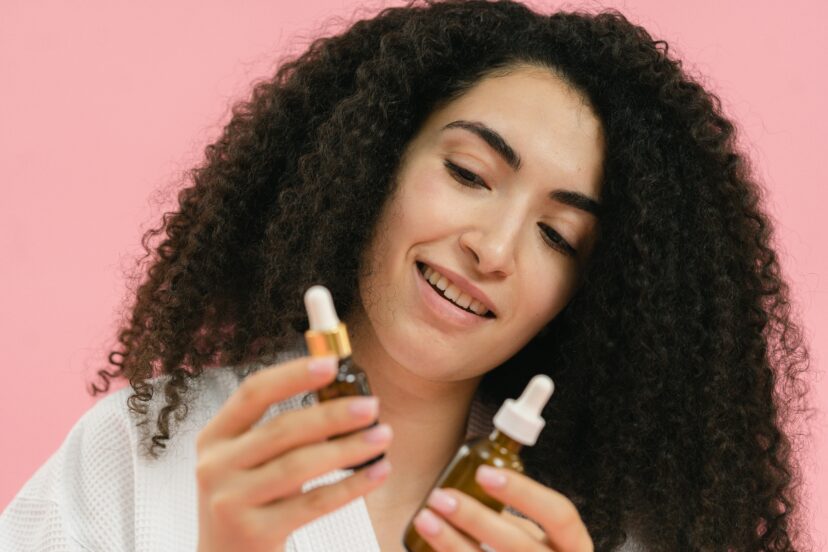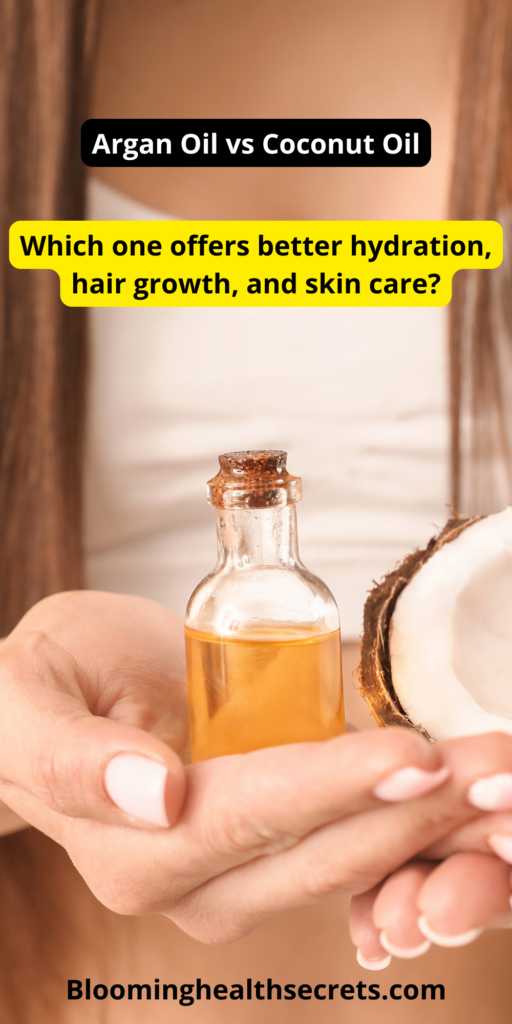Argan Oil vs Coconut Oil: Uses & Benefits Compared
When it comes to choosing the best oil for your hair and skin, two of the most popular contenders are argan oil and coconut oil. Both are natural oils that have been used for centuries, but they each offer distinct benefits depending on your specific needs. So, how do you decide which one is right for you? In this detailed guide, we’ll explore the key uses and benefits of argan oil vs coconut oil, helping you make an informed decision for your hair care routine and skin care.
What Is Argan Oil?
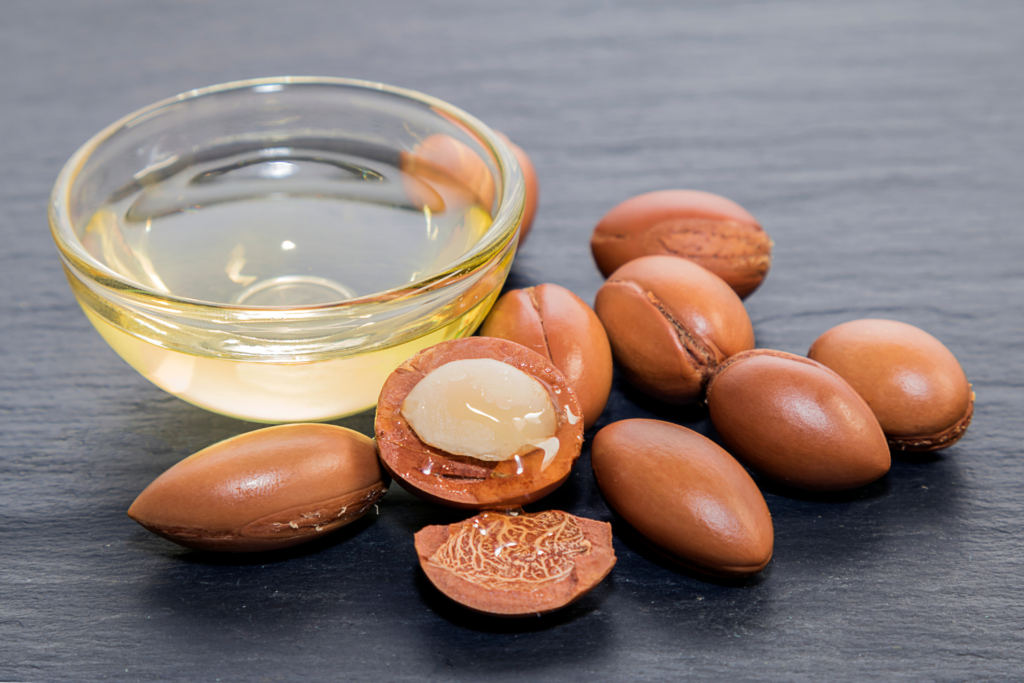
Often referred to as “liquid gold,” argan oil is derived from the argan fruit of the argan tree, which is native to Morocco. The oil is extracted from the kernels of the fruit and has been used by the Berber women of Morocco for centuries. Rich in vitamin E, linoleic acid, and other essential nutrients, argan oil is widely recognized for its incredible benefits for both hair and skin.

What Is Coconut Oil?
Coconut oil, extracted from the meat of mature coconuts, has been used in tropical regions for a long time for cooking and beauty purposes. Virgin coconut oil is packed with lauric acid, a type of saturated fat known for its antibacterial properties, making it a great option for fighting off skin infections. In the beauty world, it’s often used as a deep conditioning treatment, a leave-in conditioner, and even a hair mask.
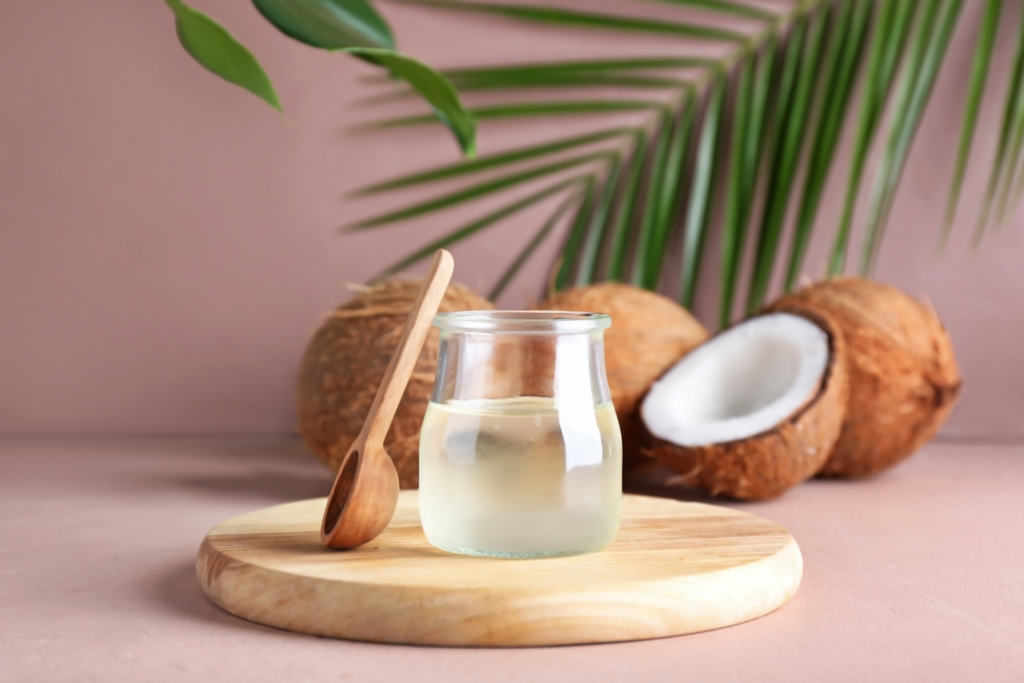
Argan Oil vs Coconut Oil: The Showdown
Let’s dive deeper into how argan oil vs coconut oil compare in terms of their uses and benefits.
1. Hair Care: Which Oil Reigns Supreme?
When it comes to hair care, both oils have their strengths, but they cater to different hair types and concerns.
Argan Oil for Hair
Argan oil is packed with vitamin E, which is essential for healthy hair growth. It also has high levels of essential fatty acids, including linoleic acid and oleic acid, that can help moisturize and strengthen the hair shaft. Pure argan oil is especially useful for taming frizzy hair, reducing split ends, and adding shine. Due to its light texture, it’s perfect for fine hair that can’t handle heavier oils like coconut.
Argan oil is also excellent for scalp health, as its anti-inflammatory properties can reduce dandruff and irritation. Regular use of argan oil can improve your overall hair health by forming a protective barrier around your hair, helping it resist damage from heat styling and UV rays.
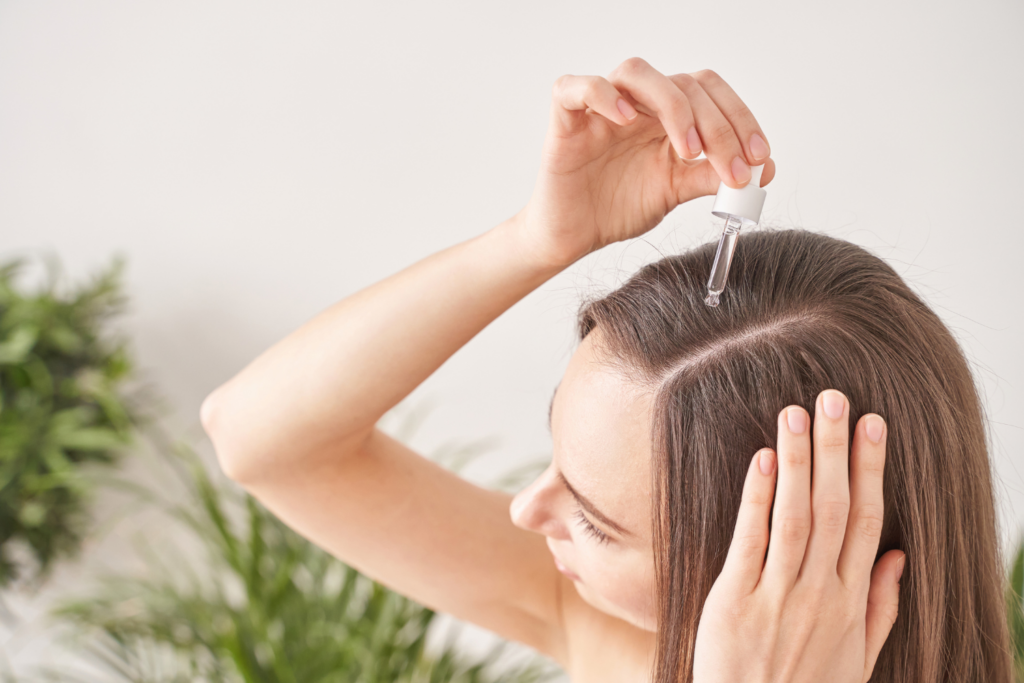
Coconut Oil for Hair
On the other hand, coconut oil is famous for its ability to deeply penetrate the hair cuticle, thanks to its small molecular structure. It’s rich in lauric acid, which can help reduce hair breakage and improve moisture retention. It’s a fantastic option for thick hair that requires deep hydration. Coconut oil is especially useful for treating dry hair or using as a hair mask for a deep conditioning treatment.
However, coconut oil is not always the best oil for everyone. If you have fine hair or oily hair, coconut oil can leave a greasy residue, weighing your hair down. Moreover, its antifungal properties make it a good choice for preventing dandruff, but some people experience hair loss after using coconut oil. This is often due to improper application or using too much, which can clog hair follicles and lead to hair fall.
2. Hair Types: Which Oil Suits Yours?
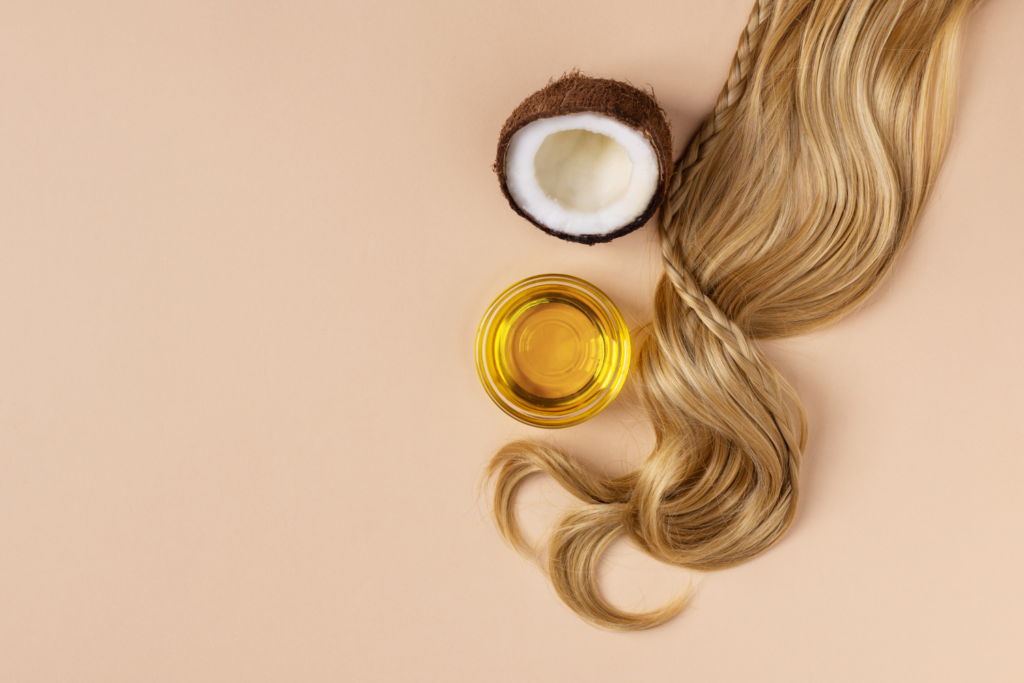
Each oil shines for different hair types:
- Fine Hair: Argan oil is a better choice as it is lightweight and won’t leave a heavy, greasy feeling.
- Thick, Coarse Hair: Coconut oil is a great way to add deep moisture, especially in the form of a leave-in conditioner.
- Curly Hair: Both oils are good options for taming frizz and adding moisture, but you may want to experiment with both to see which works best for you.
- Dry Hair: Coconut oil’s deep hydration makes it a winner for dry hair, but argan oil can provide a protective barrier without the heaviness.
- Damaged Hair: Argan oil’s high content of vitamin E and fatty acids helps repair damage and protect from further harm.

3. Benefits for Hair: Argan Oil vs Coconut Oil
Benefits of Argan Oil for Hair
- Hydration: Argan oil deeply hydrates the hair without weighing it down, making it perfect for daily use.
- Scalp Health: Its anti-inflammatory properties soothe irritated scalps and reduce dandruff.
- Frizz Control: A small amount of argan oil can tame even the most stubborn frizzy hair.
- Heat Protection: Argan oil creates a barrier against heat damage, making it an ideal choice for those who regularly use styling tools.
Benefits of Coconut Oil for Hair
- Penetration: Coconut oil penetrates deep into the hair shaft, providing deep hydration from within.
- Strengthening: The lauric acid in coconut oil strengthens hair strands, reducing hair breakage.
- Natural Shine: Coconut oil can add natural shine and smoothness to dry hair.
- Dandruff Prevention: Its antifungal and antibacterial properties help prevent dandruff and other scalp infections.
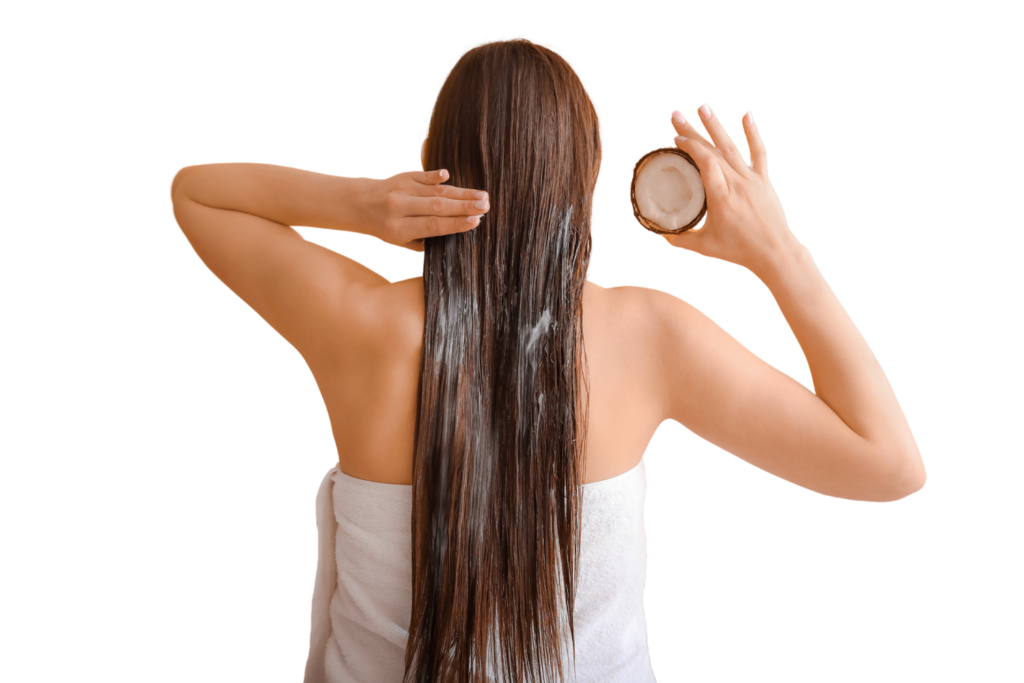
4. Skin Care: Argan Oil vs Coconut Oil
The battle between argan oil vs coconut oil extends beyond hair care to skin care.
Argan Oil for Skin
Argan oil is packed with antioxidant properties that protect the skin from free radicals and environmental damage. Its high concentration of vitamin E promotes cell regeneration and improves skin elasticity, making it a great anti-aging treatment.
Argan oil is also non-comedogenic, meaning it won’t clog pores, making it ideal for acne-prone skin and people with oily skin. It can be used on all skin types, from dry skin to sensitive skin, to provide a protective barrier and improve overall skin health.
Coconut Oil for Skin
Coconut oil is an excellent moisturizer, especially for dry skin. Its antibacterial and antifungal properties make it useful for treating minor skin infections. However, coconut oil is comedogenic, meaning it can clog pores, so it may not be the best option for oily skin or acne-prone skin.
5. Benefits for Skin: Argan Oil vs Coconut Oil

Benefits of Argan Oil for Skin
- Moisturizing: Argan oil provides deep hydration without leaving a greasy residue, making it perfect for use under makeup.
- Anti-Aging: Its antioxidant properties fight free radicals and reduce signs of aging, such as fine lines and wrinkles.
- Acne Control: Argan oil helps balance sebum production, making it suitable for oily skin and preventing breakouts.
- Healing Properties: It can help heal wounds and reduce scars, thanks to its anti-inflammatory properties.
Benefits of Coconut Oil for Skin
- Deep Moisturization: Coconut oil deeply hydrates dry skin and is often used as a body lotion.
- Soothing: Its antibacterial properties can soothe skin irritations and minor wounds.
- Barrier Protection: Coconut oil forms a protective barrier over the skin, locking in moisture.
6. Other Uses of Argan Oil and Coconut Oil

Both oils offer unique benefits beyond hair and skin care. Here’s how they can be used in different ways:
Argan Oil
- Nail Care: Apply a small amount to cuticles to keep them soft and prevent cracking.
- Massage Oil: The oil’s light texture makes it perfect for a soothing massage without leaving an oily film.
- Lips: Argan oil can be used as a natural lip balm for chapped lips.

Coconut Oil
- Oil Pulling: Swish coconut oil in your mouth for a few minutes to improve oral hygiene and whiten teeth.
- Makeup Remover: Coconut oil easily dissolves makeup while hydrating the skin.
- Cooking: Coconut oil is a plant-based oil that can be used for frying and baking, offering numerous benefits for your health.
Scientific Research on Argan Oil and Coconut Oil
- Argan Oil:
- Study: “Anti-Aging Benefits of Argan Oil” by Author: Hmamouchi, M. (2018). Published in the Journal of Ethnopharmacology.
- Findings: Argan oil is rich in vitamin E and has been proven to boost skin elasticity and reduce wrinkles, making it a staple for anti-aging skincare.
- Coconut Oil:
- Study: “Lauric Acid’s Effect on Hair Protein Retention” by Rele, A. S., & Mohile, R. B. (2003). Published in the Journal of Cosmetic Science.
- Findings: This study showed that lauric acid in coconut oil deeply penetrates the hair, reducing protein loss and strengthening hair strands.
Conclusion: Which One Should You Choose?
Choosing between argan oil vs coconut oil really depends on your specific needs. If you’re looking for a lightweight, non-greasy oil to use on your hair and skin, argan oil is the better choice, especially for fine or oily hair and acne-prone skin. It offers fantastic anti-aging benefits, helps with scalp health, and works wonders for taming frizzy hair without weighing it down. It’s also perfect for those looking for a quick-absorbing oil that won’t clog pores.
On the other hand, coconut oil is the best option if you need deep moisturization and have thick or dry hair. It’s excellent for dry skin and dry hair conditions, and its antibacterial properties make it a versatile oil that can be used for both beauty and hygiene. However, coconut oil can be too heavy for some people, especially those with fine hair or oily skin.
Ultimately, the choice between argan oil vs coconut oil comes down to your hair and skin type, as well as your personal preference. If you can, try both and see how your skin and hair respond. Sometimes, mixing them into your hair care routine or alternating between them can yield the best results for long-term care.
FAQs: Argan Oil vs Coconut Oil
1. Which is better, coconut oil or argan oil for hair?
It depends on your hair type. Argan oil is better for fine, frizzy, or oily hair because it’s lightweight and won’t weigh the hair down. Coconut oil is better for dry, thick, or damaged hair due to its ability to deeply penetrate and nourish the hair shaft.
2. What is the best oil for your hair?
The best oil for your hair depends on your specific needs. Argan oil is ideal for taming frizz, adding shine, and protecting the hair from damage, while coconut oil is great for deep conditioning and strengthening dry hair.
3. Can I replace coconut oil with argan oil?
Yes, you can replace coconut oil with argan oil, especially if you find coconut oil too heavy for your hair or skin. Argan oil offers similar moisturizing and nourishing benefits without the greasy residue.
4. What is better than coconut oil for hair?
If coconut oil leaves your hair feeling heavy or greasy, argan oil or jojoba oil might be better alternatives as they are lighter and less likely to clog hair follicles.
5. Which oils make hair grow faster?
Both argan oil and coconut oil can help promote hair growth. However, oils like castor oil, which contains ricinoleic acid, and olive oil, which is rich in vitamin E and stearic acid, are known to promote faster hair growth.
6. What hair types should not use coconut oil?
People with fine hair or oily hair should be cautious when using coconut oil as it can weigh down the hair and make it feel greasy. It may also clog pores, leading to hair loss or breakouts on the scalp.
7. Why does my hair fall out after using coconut oil?
Hair loss after using coconut oil could be due to improper application or using too much oil, which can clog the hair follicles and lead to hair breakage. Always use a small amount and focus on the hair strands rather than the scalp.
8. What hair oils to avoid?
Avoid mineral oil, as it can suffocate the scalp and block pores. Stick to plant-based oils like argan oil, coconut oil, jojoba oil, or castor oil, which provide nutrients and moisture without causing buildup.
9. Does coconut oil thicken hair?
Yes, coconut oil can help thicken hair by nourishing the scalp and protecting the hair cuticle from damage. Its ability to retain moisture makes the hair appear fuller and healthier over time.
10. Does argan oil grow hair?
Yes, argan oil can promote healthy hair growth by nourishing the scalp and protecting the hair from breakage. Its vitamin E content helps repair damage, which can encourage new hair growth.
11. Which oil promotes hair thickness?
Castor oil is widely regarded as the best oil for promoting hair thickness due to its high concentration of ricinoleic acid, which helps improve circulation to the scalp.
12. Which oil regrows new hair?
Both argan oil and castor oil are known to help regrow new hair. Castor oil, in particular, is often used in hair regrowth treatments for its ability to stimulate the follicles.
13. What happens if I put coconut oil in my hair every day?
Using coconut oil every day can result in build-up on the scalp and hair, leading to greasy strands and clogged follicles. It’s a good idea to use coconut oil as a deep conditioning treatment once or twice a week instead of daily.
In conclusion, both argan oil and coconut oil offer incredible benefits for hair and skin, but each has its own strengths. Whether you need deep hydration or daily protection, the right oil can make a significant difference in your hair care routine and overall beauty regimen. Choose wisely based on your hair type and skin needs, and remember that a little oil goes a long way in achieving the best results!

